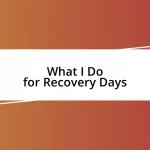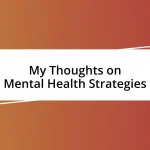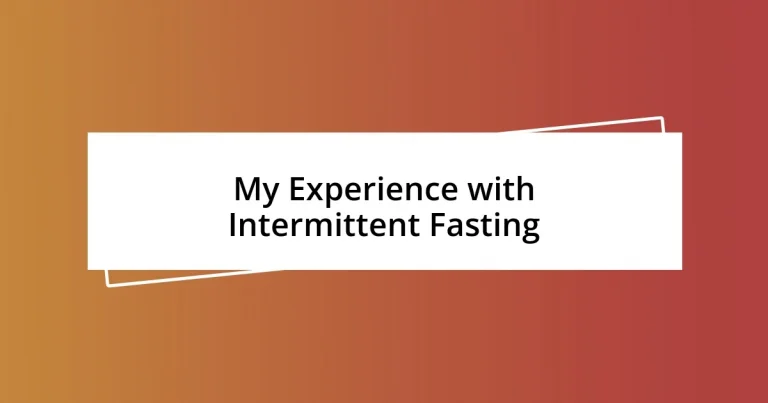Key takeaways:
- Intermittent fasting (IF) is a lifestyle choice that enhances mental clarity and energy, moving beyond weight control.
- Choosing the right fasting schedule aligns with personal routines, hunger patterns, and energy levels, greatly influencing success.
- Health benefits experienced include increased energy, healthier food cravings, and improved digestion, highlighting the positive effects of fasting.
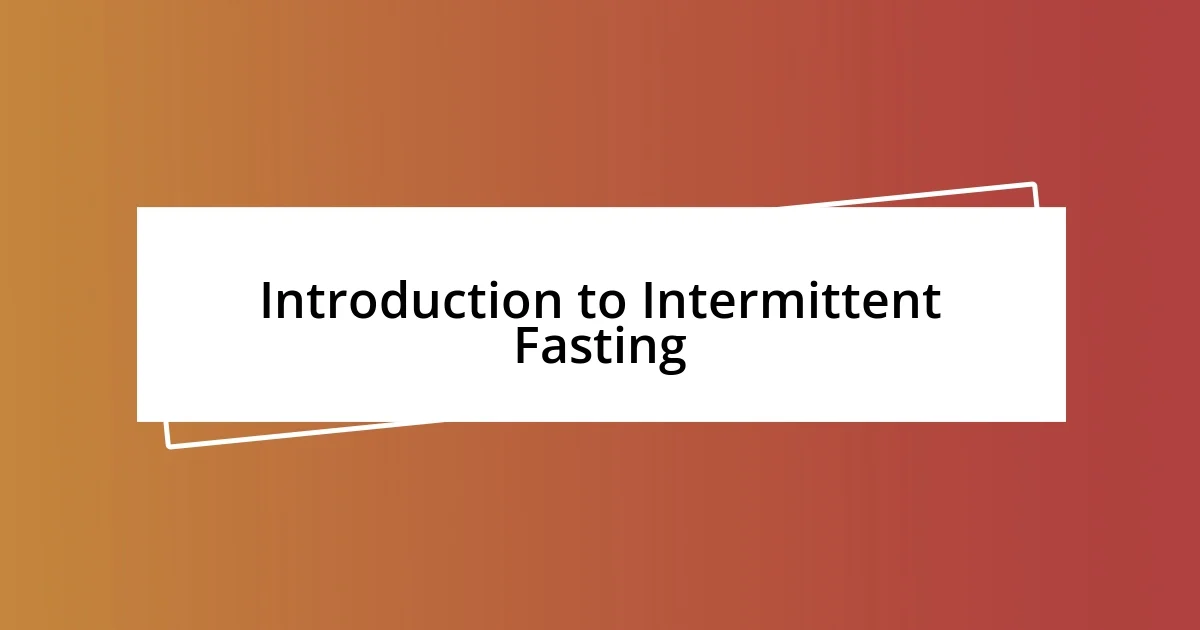
Introduction to Intermittent Fasting
Intermittent fasting (IF) is more than just a diet; it’s a lifestyle choice that has gained popularity for its potential health benefits. For me, it started as a mere experiment—could I focus my eating into a specific window of time? I’ll never forget the excitement and curiosity that bubbled inside me as I embarked on this journey.
The practice involves alternating between periods of eating and fasting, and it comes in various forms, like the 16/8 method or the 5:2 diet. When I first heard about it, I wondered whether limiting my eating hours would leave me feeling deprived or, strangely enough, liberate me from the constant stress of meal planning. To my surprise, that structure brought a clarity to my eating habits that I’d never experienced before.
As I delved deeper, I realized that it wasn’t just about weight control; it was also linked to improved mental clarity and energy levels. Initially, I felt a little apprehensive about those fasting hours. Would I be able to concentrate on my work? Would my mood suffer? Yet, as the days passed, I discovered a renewed sense of focus that made me wonder—could this fasting thing be part of a larger wellness paradigm?
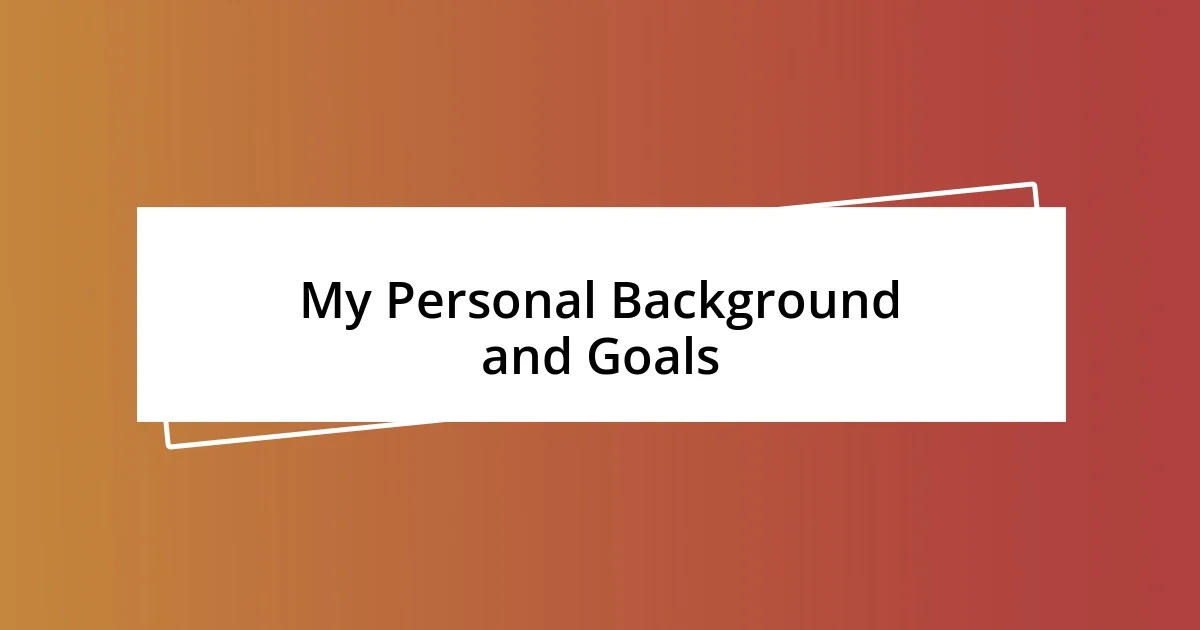
My Personal Background and Goals
My journey with intermittent fasting began with a desire for better health and a bit of curiosity. I’ve always been someone who enjoyed food, but I found myself feeling sluggish after meals. So, I set out to explore how altering my eating pattern could impact my energy levels. The goal was not just about losing weight; I wanted to feel invigorated and focused throughout my day.
Initially, I worried about feeling deprived during fasting hours, but I quickly realized this structure brought a sense of control I hadn’t experienced before. It was as if my mind and body were in an intriguing dance, and I was finally learning the steps. This newfound freedom to plan less while eating more intentionally was a revelation.
I recall one particular afternoon when I breezed through a challenging project at work during my fasting window. Instead of feeling distracted by hunger, I was sharper than ever. Moments like that helped solidify my commitment to intermittent fasting, turning it from an experiment into a lifestyle. It became clear that my personal goal was to harness this practice for more than physical changes; I sought mental clarity and emotional stability, and I was on the right path.
| Aspect | Details |
|---|---|
| Desired Outcome | Improved energy and mental clarity |
| Initial Concerns | Fear of deprivation and lack of focus |
| Realization | Gained control and intention in eating |
| Impact | Enhanced productivity and focus during fasting |
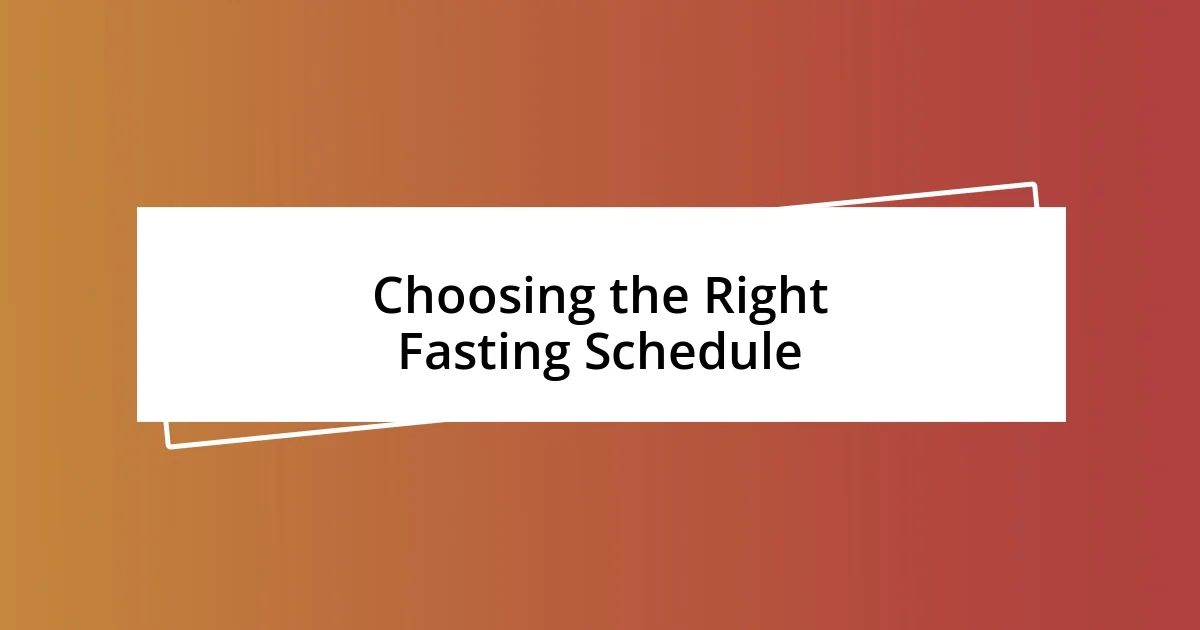
Choosing the Right Fasting Schedule
Choosing the right fasting schedule can be a game-changer in your intermittent fasting journey. I remember grappling with the decision of whether to adopt the 16/8 method or try the 5:2 approach. Each had its allure—16/8 felt manageable because it offered a daily rhythm, while 5:2 intrigued me with its flexibility. Ultimately, I found that your lifestyle and preferences significantly influence this choice. Sure, there’s a scientific basis for each method, but the one that best fits your life will provide the most sustainable results.
Here are some considerations to keep in mind when selecting a fasting schedule:
- Daily Routine: Think about your work schedule and social commitments.
- Hunger Patterns: Pay attention to when you naturally feel the hungriest.
- Energy Levels: Consider how your body responds to fasting during specific times of the day.
- Physical Activity: Reflect on how your exercise routine aligns with your eating windows.
- Mental Clarity: I found that fasting during times when I needed to be productive was more beneficial than I anticipated.
Choosing your fasting schedule is not just about the numbers—it’s about finding a rhythm that harmonizes with your life.
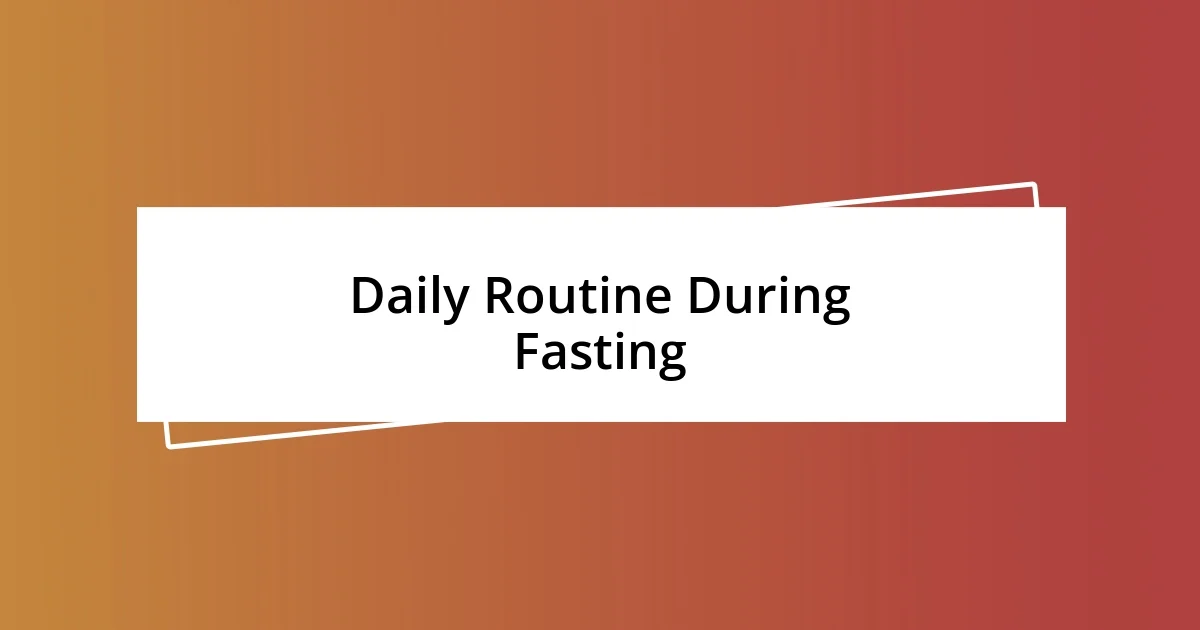
Daily Routine During Fasting
When I first started intermittent fasting, my daily routine shifted significantly. I discovered that the hours leading up to my eating window became a unique blend of productivity and focus. Instead of snacking mindlessly, I would tackle complex tasks with surprising clarity. Have you ever felt that surge of concentration when distractions are minimized? That’s exactly what I experienced during my fasting hours.
Meal prep also became a vital part of my routine. I learned to embrace cooking as both a creative outlet and a necessity. Planning my meals ahead of time not only reduced stress but also made me appreciate the flavors and nutrients I was consuming. One evening, I spent a few hours preparing vibrant salads and hearty soups for the week, and I remember feeling a sense of accomplishment that was both enjoyable and nourishing.
Physical activity was another key element. I opted for lighter workouts during fasting but noticed that my energy was higher than I anticipated. I often wondered if exercising in a fasted state would drain me, but quite the opposite happened. On those days when I felt energized after a run, I’d smile knowing that my body was adjusting and thriving in a way I never thought possible. Isn’t it fascinating how our bodies can adapt and surprise us?
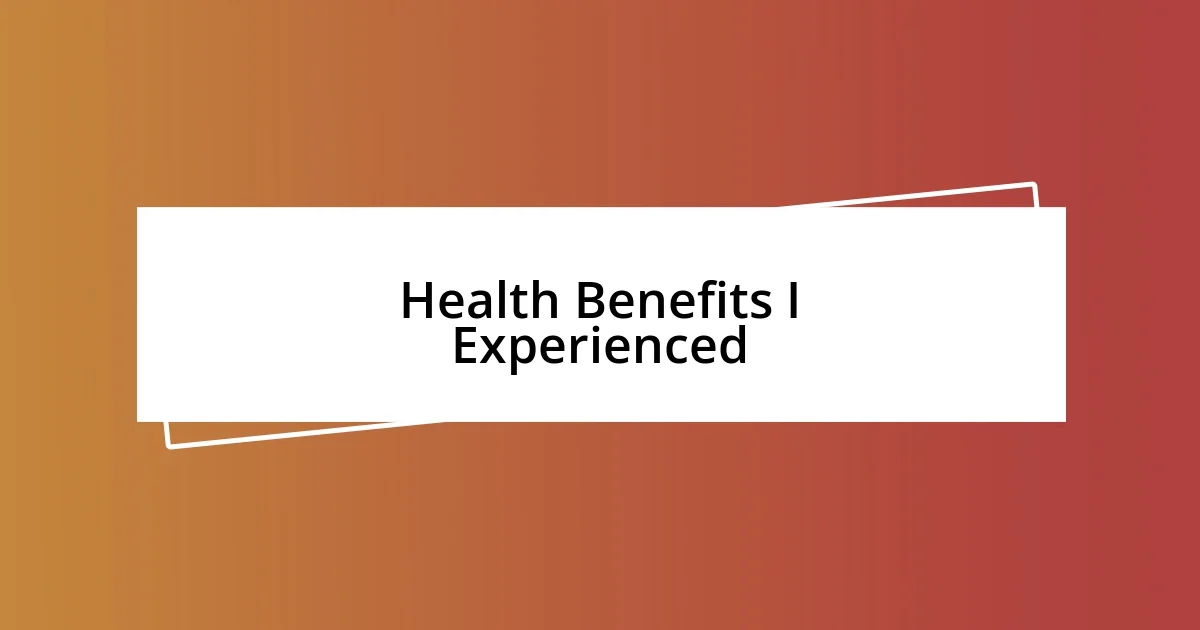
Health Benefits I Experienced
Embracing intermittent fasting led to some remarkable health benefits for me. One of the most notable changes was my increased energy levels throughout the day. I used to struggle with that mid-afternoon slump, where I could feel my concentration dwindling. Now, I found that fasting sharpened my mental clarity. On days when I was fasting, I often tackled my to-do list with an enthusiasm I hadn’t experienced before. Have you ever had a day where everything just clicked? That’s what those fasting hours felt like for me.
Another significant benefit was the way my body responded to food. I noticed that I craved healthier options during my eating windows. Before starting fasting, I could mindlessly reach for chips or sweets without a second thought. Now, I find myself gravitating towards vibrant fruits and hearty grains—what a delightful transformation! I often paused to appreciate how my body seemed to guide my choices, leading me to make nourishing decisions that fueled my well-being. Isn’t it incredible how our bodies can influence our cravings when we listen to them?
Lastly, I found that intermittent fasting had a positive impact on my digestion. Initially, I had some concerns about eating just within a limited time frame, but to my surprise, it actually eased my bloating and discomfort. My tummy felt lighter, and I began to look forward to my meals rather than dreading the heaviness afterwards. Reflecting on it, I couldn’t help but wonder how many people might feel the same relief if they tried fasting. Sometimes, less really is more when it comes to how we nourish ourselves!
